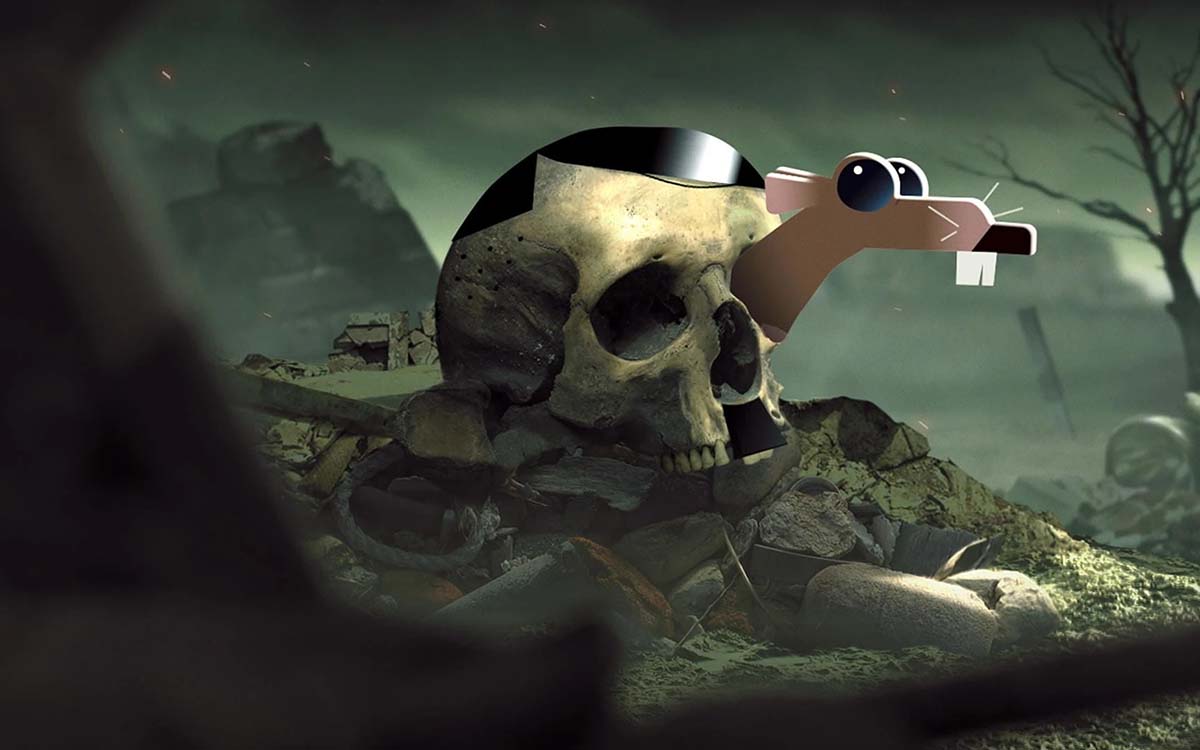- N° : [23]
- Author : MALDONALDO, Victor, and TORRES, Alfredo
- Title : “ Alternate Histories .” Love, Death and Robots
- Date : 2019
- Typology : Animated Serie
Formerly, in the Roman Empire, humans regarded rats as luck-bringing. Before a war, if soldiers encountered a white rat, it was a good omen, whereas a black rat was a bad omen. This legend embodies the controversial image of rats in the human imagination. Based on physical prejudices, rats are perceived either positively or negatively. Image fiction has attempted to deconstruct these prejudices, by reworking the aesthetics of the rat. In animations in particular, the rat's physique can be caricatured to appear “ cuter ” : the rat's body is rounded, its eyes are enlarged, its facial expression is smiling... This makes the rat more sympathetic in the eyes of humans. However, these fictions can also contribute to the appearance-based prejudice : the rat's body can become angular, its body elongated, its expression Machiavellian.
Thus, the image of the rat has not always been negative, even if this image still seems to predominate today in the collective imagination. Oscillating between the positive and negative portrayal, fiction has helped to strengthen as well as deconstruct prejudices against the rat. The representations we have of rats are related to human evolution, history, politics or science. Despite our progress and the increase in our knowledge that refute many prejudices, the appearance-based prejudice against the rat persists. Perhaps it is because of the human image we project on the rat (an image that ultimately exceeds the appearance of the rat) ? We found that the rat was both the embodiment of the worst human faults and the best human qualities. Perhaps it is also because we are afraid of losing our superiority by giving more consideration to animals ? It may be that one day the rat will surpass and replace the human, as in the fictional Alternate History [23] . The rat goes through the same evolutionary process as humans, eventually evolving into a fully functional rat civilization that has become a perfect democracy. As a consequence, fiction is an essential tool to influence the collective imagination, but its use still needs to be perfected in order to reach more people to deconstruct the appearance-based prejudice.
. The rat goes through the same evolutionary process as humans, eventually evolving into a fully functional rat civilization that has become a perfect democracy. As a consequence, fiction is an essential tool to influence the collective imagination, but its use still needs to be perfected in order to reach more people to deconstruct the appearance-based prejudice.